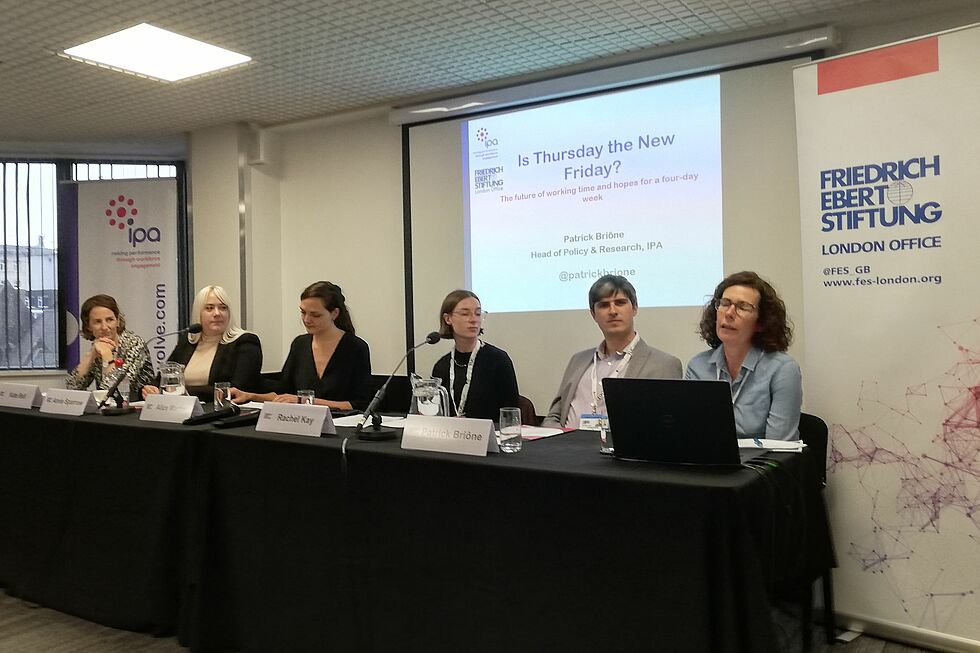Work, Economy & the Just Transition
Work, Economy & the Just Transition

The social democratic understanding of progress in the 21st century combines social, economic, and ecological responsibility. The power of automation, combined with the global threats posed by increasing inequality and climate change – two of the greatest present-day challenges – prompts us to rethink much of our economic, industrial, and social models. Hence, the Friedrich-Ebert-Stiftung is committed to a Just Transition – a socially and ecologically just structural change that enables sustainable economic activity, climate protection, and better life prospects for all.
FES UK strives to support both people and the economy for a Just Transition in the UK and Germany. We work with political and economic experts, international organisations, and trade unions to develop strategies and provide advice on how the UK and Germany can work together to achieve social justice and sustainability, especially in the aftermath of Brexit. In dialogue formats and publications, we develop approaches on how the EU and UK can successfully work together on climate and social policies. We need to safeguard and strengthen the welfare state, contribute to gender equality, and develop climate-neutral energy systems and industries.
Trade unions are at the forefront of the struggles for a democratic and sustainable world of work. International dialogue, policymaking, and strategising are essential to ensure effective workers’ representation. The Friedrich-Ebert-Stiftung works closely with workers, activists, and officials to promote stronger, more democratic, and more inclusive trade unions. In addition, our work in this area is supported by our Future of Work and Just Climate offices, both of which are located in Brussels and were founded in 2021. FES Future of Work aims to discuss and debate the future of work at the European level, and FES Just Climate focuses on energy, industrial, structural, and labour policies, as well as the European Green Deal.
Related Events
Is Thursday the New Friday? The Future of Working Time and the Four-Day Week
The panel discussed the findings of the publication by FES and IPA on the prosepcts of a four-day week, considering the prospects of the policy as well as the obstacles to its implementation.
A century of working time reductions in Britain has stalled since the 1980s but public appetite for a shorter working week has not gone away. With the UK facing a decade-long productivity crisis, concerns about presenteeism and a fear that a lot of time spent at work is unproductive, questions are now being seriously asked about whether it is time to push for more working time reductions.
The roll out of collective bargaining and the imperative to change labour market norms of working time were identified as crucial steps towards achieving this goal.
Related Publications
Is Thursday the New Friday? The Future of Working Time and the Four-Day Week
The panel discussed the findings of the publication by FES and IPA on the prosepcts of a four-day week, considering the prospects of the policy as well as the obstacles to its implementation.
A century of working time reductions in Britain has stalled since the 1980s but public appetite for a shorter working week has not gone away. With the UK facing a decade-long productivity crisis, concerns about presenteeism and a fear that a lot of time spent at work is unproductive, questions are now being seriously asked about whether it is time to push for more working time reductions.
The roll out of collective bargaining and the imperative to change labour market norms of working time were identified as crucial steps towards achieving this goal.



